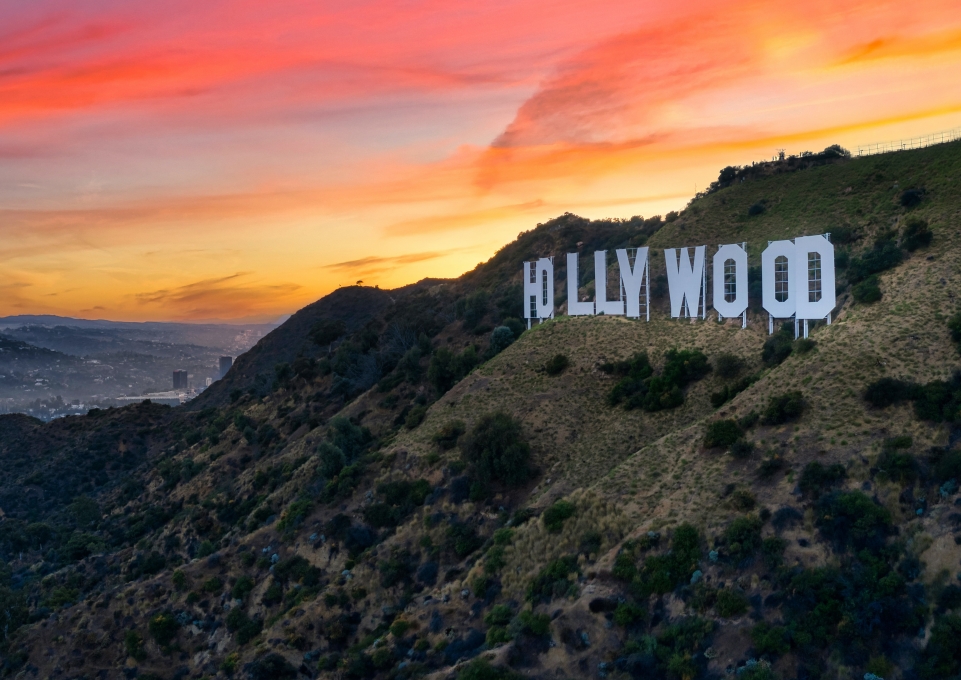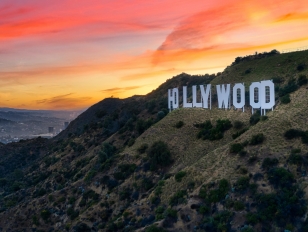
On May 2, members of the Writers Guild of America (WGA) went on strike, resulting from a labor dispute between the WGA, which represents some 11,500 writers of TV shows and movies, and the Alliance of Motion Picture and Television Producers (AMPTP). In this ongoing dispute, entertainment writers are demanding a higher pay structure that better accommodates the streaming TV model, as well as fairer deals and contracts, minimum writers’ room sizes, and provisions about artificial intelligence, according to a list of WGA proposals (PDF, 100 KB). The guild, when announcing the strike, called this moment an “existential crisis” for writers.
We spoke with Jeffrey Hirschberg, founding director and associate professor of television and film arts (TFA) at Buffalo State University, about what the strike means for the entertainment industry as well as for viewers. Although he is a member of the WGA, Hirschberg said, he’s not involved with the guild’s negotiations.

Name: Jeffrey Hirschberg
Title: Buffalo State Associate Professor of Television and Film Arts (TFA)
Hirschberg joined Buffalo State University in 2006 as the founding director of its TFA program, following teaching positions with Cornell University and the Rochester Institute of Technology (RIT). A member of the Writers Guild of America (WGA), he has sold a series to Showtime, won the WGA Screenplay Reading Series, directed the WGA’s TV Pilots Resurrected program at Lincoln Center, and participated in the ABC Daytime Writer Development Program. He is the author of the book Reflections of the Shadow: Creating Memorable Heroes and Villains for Film and TV (Michael Wiese Productions, 2009), and his debut novel is expected to be published next year.
Hirschberg earned a bachelor’s degree from Cornell University, where he studied developmental psychology and film, and a master’s degree in television, radio, and film from Syracuse University’s Newhouse School of Public Communications.
What led up to this strike?
In 2007, members of the WGA went on strike, and it lasted 100 days. It was primarily focused on how writers were compensated in the new landscape of the Internet. Streaming has been a game changer since then. Most of the studios are related to a streaming service in some way, and its model has not always been beneficial to writers. Now that AI has made its way into the mainstream, the WGA wants to ensure that its members are well positioned for the future of this uncertain technology.
What are the writers’ complaints?
Traditional network and basic cable syndication helped provide writers with income when they weren’t actively working. Now, TV shows on streaming services typically are only made into six to 10 episodes per season, compared with at least 22 episodes with traditional network shows. Think Seinfeld or Friends. Because of this, the shows now hire fewer writers. The writers argue that they can’t make a living, especially if they live in New York City or Los Angeles. They’re asking how can they work as perpetual freelancers, getting paid for one abbreviated series, and then having to find the next gig? This is especially difficult to digest when streaming services and studios are generating billions of dollars a year off the intellectual capital of WGA writers.
Another source of contention is transparency in regard to viewership. I’ve heard guild members complain that they don’t make much more money writing for a hit show versus a show with less viewership. Overall, the streamers have not been very transparent in regard to viewership, and writers want to be fairly compensated when creating hit shows.
Artificial intelligence is another issue. The WGA is saying, if studios are going to generate ideas from AI, they cannot classify it as source material. The guild appears to be pretty adamant that software should not replace the creative process or get screen credit. It wants to protect writers in the future, regardless of how AI evolves over time.
What is the studios’ perspective?
Studios are saying that more writers have been employed since streamers have expanded programming and, at the same time, most media stock prices have been depressed over the last couple of years. Although they’ve invested billions of dollars in streaming, it hasn’t necessarily paid off, and some entertainment companies are operating with losses. To remedy this, some of the streamers, including Netflix, have announced ad-supported tiers for customers. It remains to be seen how these new tiers will affect streamer profitability.
How will the strike affect viewers?
The longer the strike goes on, the more viewers should expect to see its impact, such as more reality TV. Most scripted programs have already been affected by the strike. In some cases, shows that have already been released will not be affected.
How will it affect other entertainment workers?
By many estimates, the 2007 strike cost the entertainment industry $3 billion. The 2023 strike is not only going to have a significant impact on viewers, but also an impact on the people who work on these shows—production assistants, grips, hair and makeup artists, etc. It takes a village to make a TV show, and that village will suffer the longer on the strike continues.
How long do you predict the strike will last?
I would be surprised if it’s resolved before Labor Day. The last strike went on for 100 days. I think there’s a lot of data points that need to be resolved. Writers are in a strong position. After all, they are creators of everything the world consumes with entertainment. It all begins with a script.
Top photo by Venti Views.



